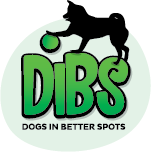When you adopt (or foster), we don’t know a dog’s skills in the bathroom department! We can hope, but we never know!
To help with potty training, there are a few important tips!
- Outside treats only
- Schedule & consistency
- Crate training
The same as with children, dogs aren’t born knowing what to do: it’s our job to help them. There is no blame involved – it’s just a skill, similar to learning “sit” or walking well on a leash. Don’t get frustrated or mad: accidents happen. Make yourself a kit that includes a spray bottle of water & vinegar, paper towels, a roll of poop bags, and a scrub brush. Keep it handy. You need to keep this stress-free for your puppy, as over-reacting can actually have a negative effect (instead of learning, they are focused on you).
Outside Treats only
For the sake of your own sanity, halt all other training until you can master house training (as it tends to be the one that frustrates people the most). You love your new pup, and you want to make him/her love you back – but you need to stop all free treats. Your dog needs to work for their treats, and their first job is “outside pees/poops only!” Always go outside with your dog, treats in your pocket. As soon as they stand up from peeing, squeal with delight and give them a treat! They want to make you happy, and they will figure it out.
Some dogs may play the waiting game with you, but you need to play along, and you need to win. As much as you want to be inside, you need to signal to your pup, that you don’t go back inside until business is done. Don’t play, don’t engage, don’t make it fun. Just wait it out.
Note: some people can’t resist treats (please try) and if you are one of those people, save the very very best treats for outside. High-value treats should be in a league of their own, and never given for free.
Schedule & Consistency
Pay attention to your dog. Does he/she poop 10 minutes after a meal? Or 20 minutes? Whatever your time frame is, you now have a start on your schedule! Feed your dog, look at your watch, go outside, and reward.
If your dog is younger, frequent pees will be needed. Go outside more often – sometimes as often as an hour. Never yell or make your dog fear you, but instead scoop them up and run outside with them. You are in this together! If a dog has an accident inside, be sure to check yourself: is it my fault? Did I forget to get them out in time?
Some foster families use bells that hang on the door (purchased from Pet Valu), to allow their dogs to communicate their ask to go outside. A few tips to get started with bells:
- Let your dog see you ring the bells before you open the door.
- If the bells are rung accidentally, race for the door and open it.
- Soon, they will associate the noise of the bells with the door opening (followed by a high-value treat and some “good boys”).
It’s also important to be consistent with the same “spot”. If your dog is confused about their spot, maybe place some of their poop there, so the scent will be associated with the location.
Crate Training
Crates are best used for the duration of house training and then can be put away (unless you have a destructive dog). Typically, a dog will not soil their own personal spot, and they will hold it until they can get outside to relieve themselves. This is a great thing as it shows your dog has an element of decency!
Recently, a foster had a younger dog, pooping many times a day from an upset stomach. Rather than waking 5 times in the night, they set up a bigger area, so she had sleeping quarters as well as a pee/poop pad to use. Once her poop solidified and reduced in quantity, she was moved back to the smaller crate and she was back on track.
Some dogs actually love their crate and may want to use it, after they are house-trained. Leave the door open for them, and give them their safe haven.
If your dog is “marking” try the short term solution of a belly band. It takes all the fun out of marking, and they generally stop within a few days.
Other resources:
House Training Your Puppy
How to Potty Train Your Puppy
